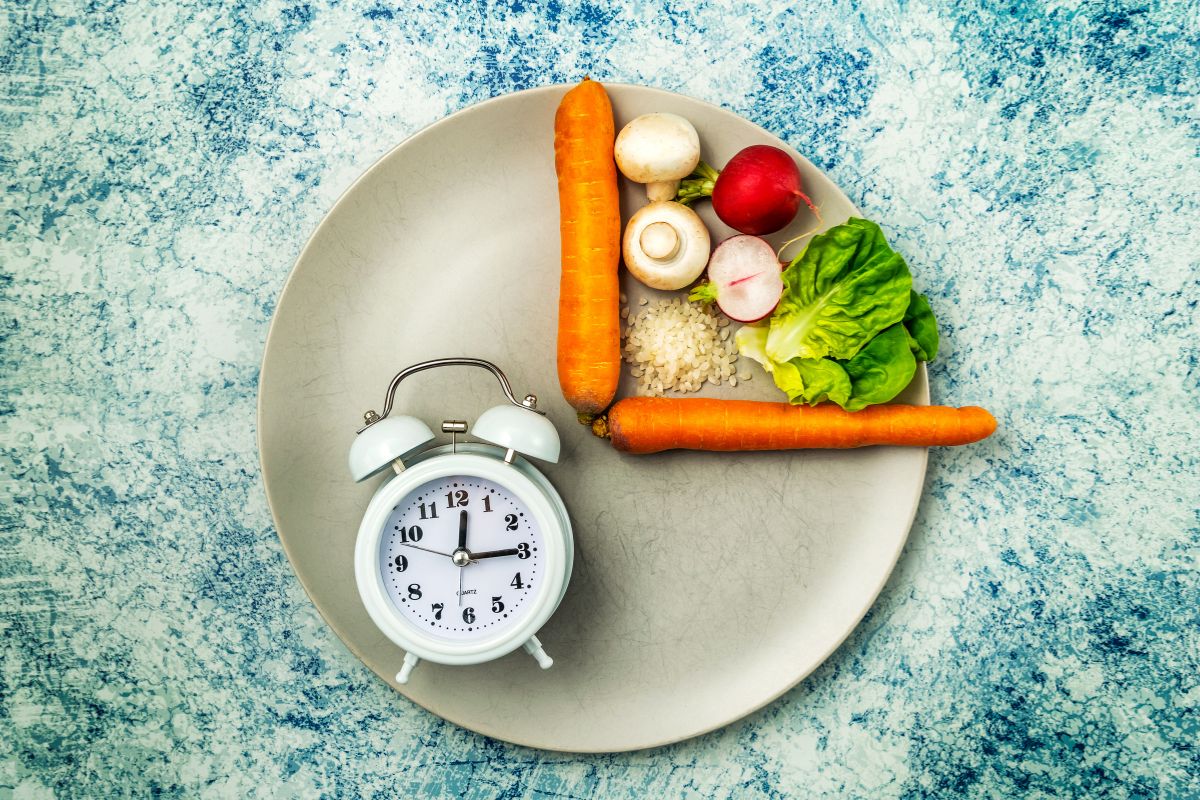My sister Emily started banging on about intermittent fasting last summer, and I thought she’d lost her marbles. “I only eat between noon and eight,” she said, looking proper pleased with herself. “It’s brilliant for weight loss.” Meanwhile, I’m standing there with a bacon sandwich at half past nine in the morning, thinking she’s mental.
Six months later, she’d lost two stone and wouldn’t shut up about how amazing she felt. My mate Archie joined in too; apparently half his office were doing this 16:8 thing where you fast for sixteen hours and eat for eight. Seemed like everyone was jumping on this bandwagon except me.
But then I started reading about it properly, and the picture got a lot more complicated than my sister’s success story suggested.
The Good News About Intermittent Fasting

Let’s start with what actually works. Recent studies confirm that intermittent fasting may be quite effective if you want to lose weight and improve some health parameters. Most of the research suggests that IF is associated with a reduction of waist circumference, fat mass, LDL-cholesterol, triglycerides, and fasting insulin and an increase of HDL-cholesterol.
I must say it sounds quite impressive in theory and aligns with my own experience: Emily and Archie went on without having to count every single calorie or give up their favourite meals. They ate the same meals but during a smaller time period. Simple as that, but it does suit a lot of people.
I think the most appealing factor is that it is simple. No complex meal plans; you do not need to weigh or even measure your meal, and there is no such thing as forbidden or restricted foods. All you need to do is not eat breakfast and quit eating after 8:00 p.m. Even I could manage that, in theory.
Different Ways to Fast
Turns out there’s loads of ways to do intermittent fasting. The 16:8 method is most popular – fast for sixteen hours, eat for eight. Usually means skipping breakfast and eating between noon and eight pm.
Then there’s the 5:2 diet where you eat normally five days and restrict calories to 500-600 on two days. Some people do alternate-day fasting, eating one day and fasting the next. Recent studies show 4:3 intermittent fasting might outperform daily calorie restriction for weight loss.
My brother-in-law tried the 20:4 method, eating only between four and eight pm. Lost loads of weight but was absolutely miserable most of the time. Kept snapping at everyone because he was hungry. Not exactly sustainable, that.
The Weight Loss Reality

The weight loss benefits seem real enough. Research shows intermittent fasting is effective for weight loss and specific cardiometabolic health markers in people with prediabetes or type 2 diabetes. Makes sense when you think about it; eat for fewer hours, consume fewer calories overall.
But here’s what nobody tells you: it’s not magic. You still need to eat reasonably well during your eating window. Archie learned this the hard way when he spent his eight hours demolishing pizza and chocolate biscuits. Didn’t lose an ounce for three weeks.
The people who succeed tend to eat normal, balanced meals during their eating window. They’re not cramming in twice as much food to compensate for the fasting period.
Then Came the Scary Headlines
Just when intermittent fasting was getting mainstream, some proper alarming research came out in March 2024. A study found that people following an 8-hour time-restricted eating schedule had a 91% higher risk of death from cardiovascular disease.
Mental numbers, right? Suddenly everyone’s WhatsApp groups were buzzing with “did you see that study about intermittent fasting?” My mum called me in a panic because she’d just started the 16:8 method on her doctor’s advice.
But then I started digging deeper into this study, and it’s not as straightforward as the headlines made it sound.
The Problems with That Scary Study
The British Heart Foundation pointed out that the study doesn’t show intermittent fasting causes death from heart disease; just that research showed a link between eating over less than eight hours and higher death rates.
Big difference between correlation and causation, isn’t it? Maybe people who eat in tiny windows are doing other unhealthy things too. Maybe they’re cramming junk food into their eating periods. Maybe they’ve got existing health problems that made them try extreme dieting in the first place.
Experts noted the study suggests time-restricted eating may have short-term benefits but long-term adverse effects, though more details are needed. That’s the problem with preliminary research; it raises more questions than it answers.
What Actually Matters
So is intermittent fasting really effective? Depends what you mean by effective, doesn’t it?
For weight loss? Yeah, it works for loads of people. Emily’s kept her weight off for over a year now, and she swears it’s easier than traditional dieting. No calorie counting, no forbidden foods, just timing.
For general health? The research is mixed. Some studies show it reduces body weight and fasting glucose levels, together with reducing insulin resistance while boosting heart health. But that scary cardiovascular study suggests we might not have the full picture yet.
My Take After Looking at Everything
Here’s what I reckon after months of watching my sister, reading the research, and trying it myself for six weeks: intermittent fasting works, but it’s not a miracle cure.
It’s a tool that helps some people control their eating without the faff of complicated diets. If you’re someone who struggles with portion control or late-night snacking, limiting your eating window might help. Simple as that.
But if you’ve got heart problems or diabetes, it’s probably worth chatting to your GP first. And if you’re miserable doing it, what’s the point? Life’s too short to be hangry all the time.
The question “is intermittent fasting really effective?” doesn’t have a simple yes or no answer. Effective for what? Weight loss; probably. Long-term health; the jury’s still out. Making you feel better about yourself depends entirely on you.
I’m still doing a loose version of 16:8 because it stops me eating biscuits at ten pm, but I’m not religious about it. Skip breakfast most days, eat normally otherwise, and don’t stress if I fancy an early coffee with milk.
Maybe that’s the real answer; it works if you make it work for your life, not the other way around.






